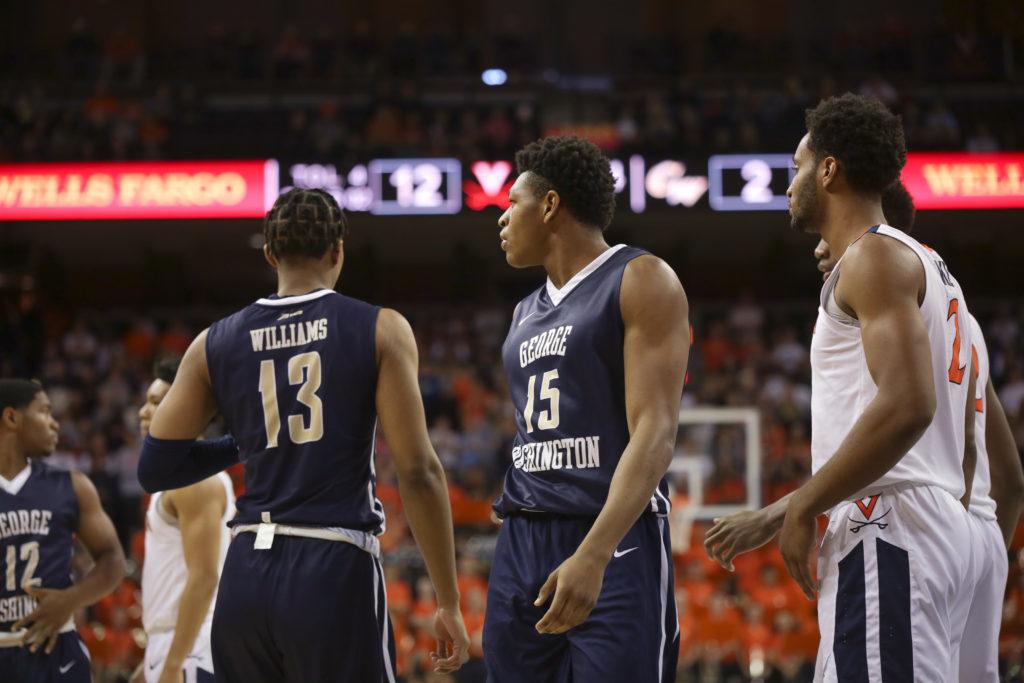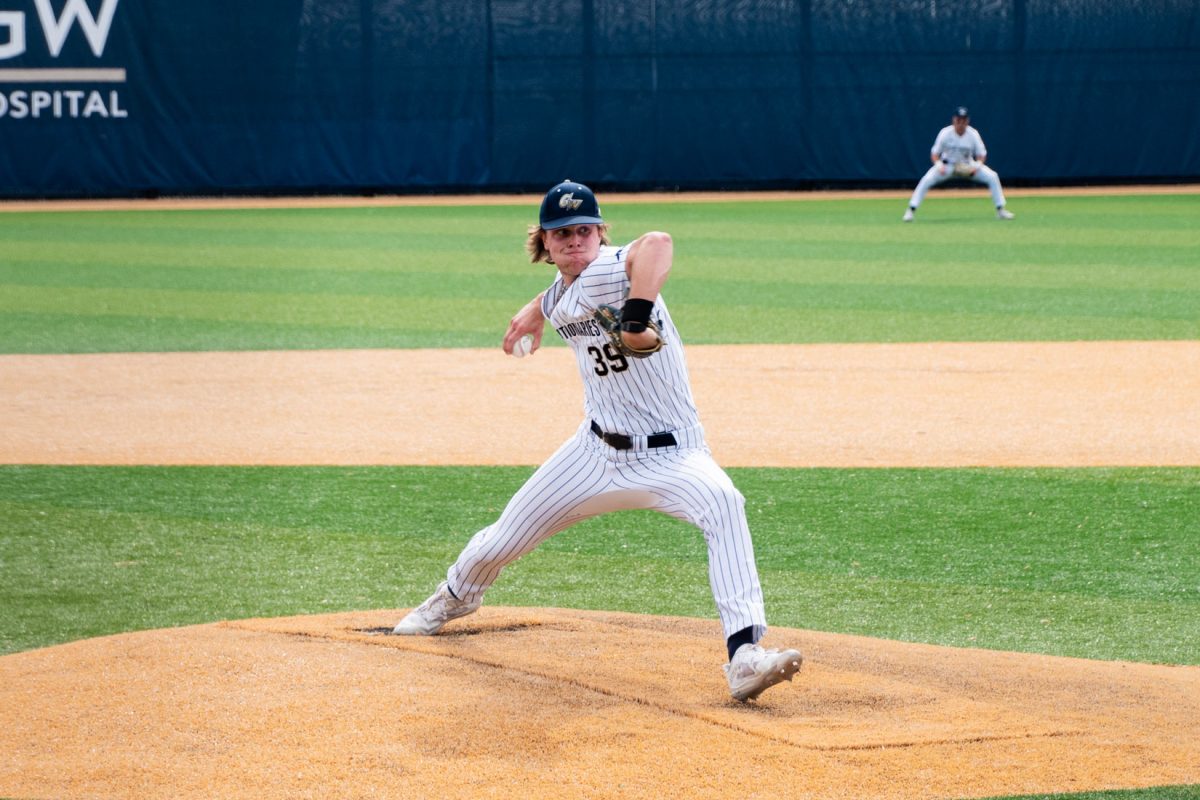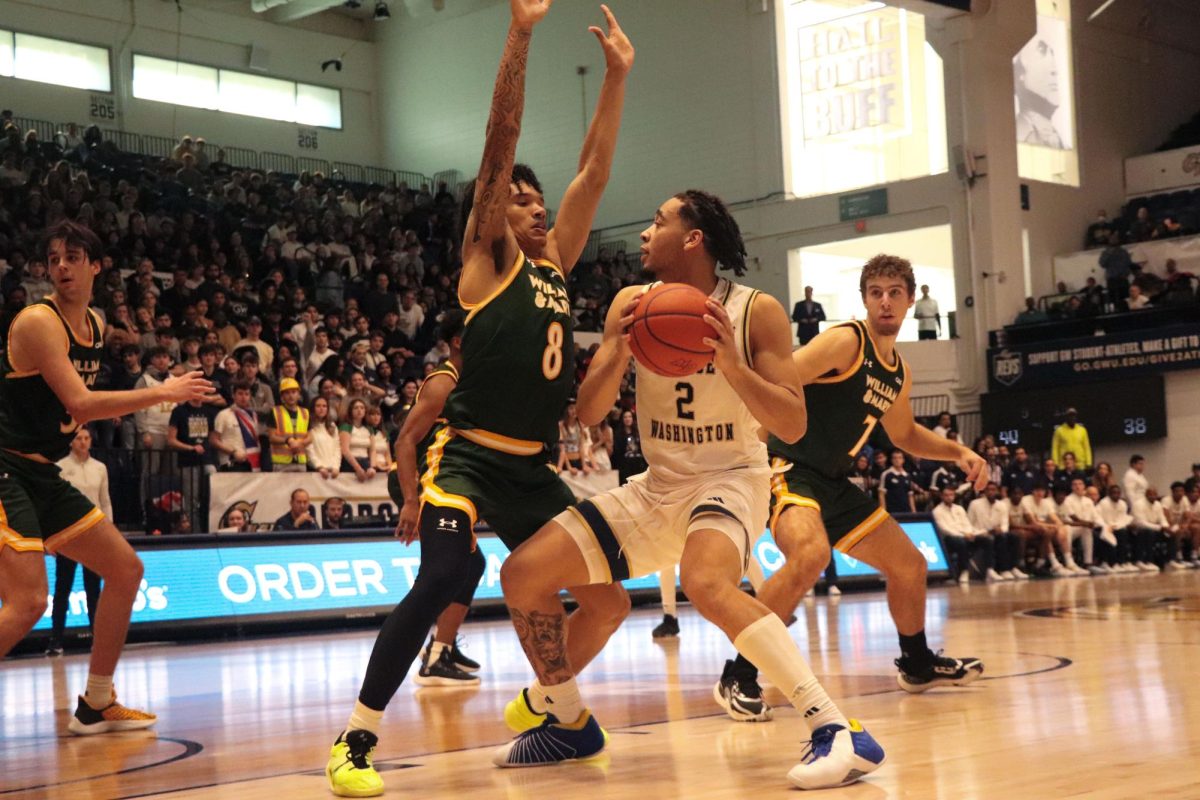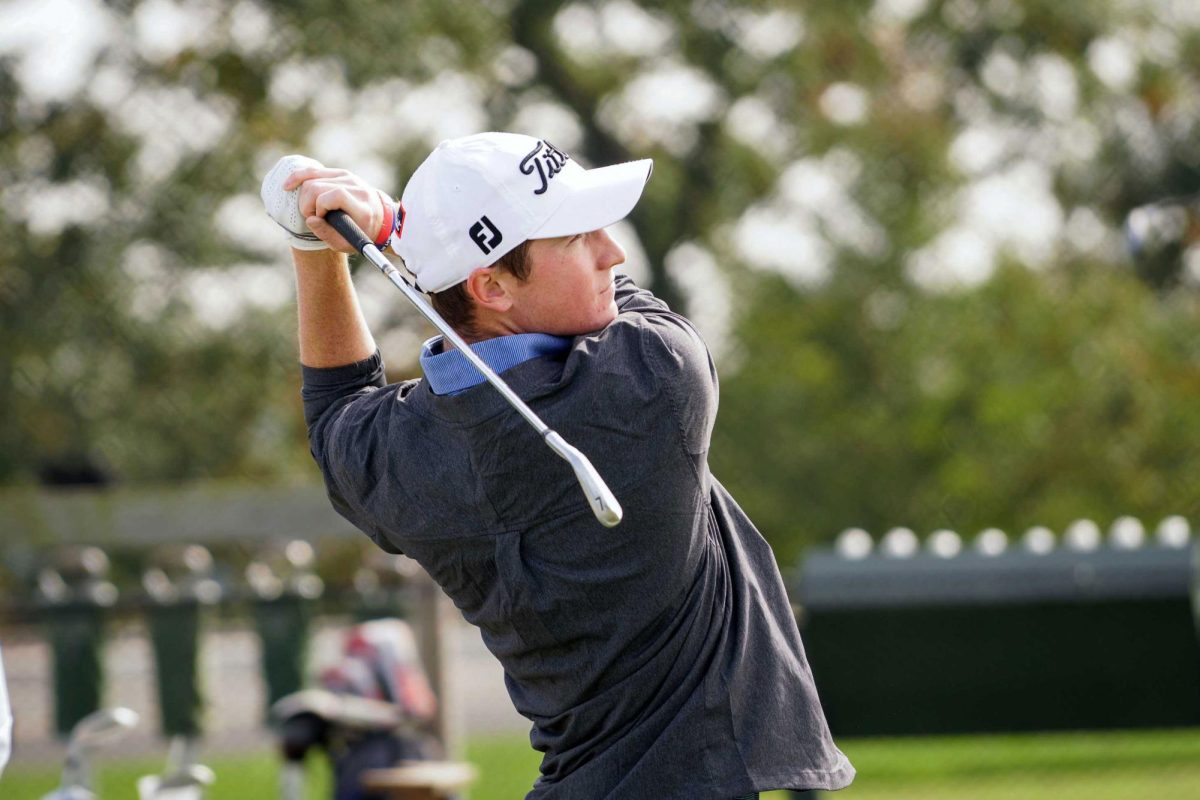After the California governor signed a bill into law last month allowing student-athletes to be compensated for their name and image, he called the bill “the beginning of a national movement.”
Since the California bill, at least nine other states – including New York and Pennsylvania, which house five Atlantic 10 schools – have proposed similar legislation. Sports law experts said the bill was intended to benefit student-athletes, but the law sparks concern that conference schools, like GW, that are not in states with similar legislation could be at a disadvantage.
The “Fair Pay to Play Act,” first enacted on Sept. 30 in California, allows student-athletes to profit from their name, image and likeness and to hire agents to manage endorsements or sponsorships. The legislation prohibits conferences and athletic associations, like the National Collegiate Athletic Association, from interfering in a student-athlete’s pay.
Tanya Vogel, the director of athletics and recreation, declined to comment.
Michael Rueda, a partner and head of U.S. sports and entertainment practice at the international law firm Withers, said paid student-athletes may need to negotiate contracts, sign with agents and work with lawyers – a tall order for a young person in school who is competing collegiately.
He said the responsibility of providing resources, like vetting agents and student-athlete advisers who can help students understand deals and negotiations, could fall on the NCAA or individual athletic departments.
“If we’re going to give student-athletes the opportunity to monetize their name and likeness, we also have to be prepared to help give them enough information so that they can do that in a thoughtful manner and protect themselves,” Rueda said.
Rueda added that gymnasts and swimmers in particular can see an increased benefit because competitors’ prime age to compete is in college.
Gymnastics, which competes in the East Atlantic Gymnastics League, won two conference titles in the past five years and made a run in the NCAA tournament last season. Men’s swimming and diving is looking for its fourth A-10 Championship in as many years and the women’s program hopes to continue its upward trajectory and notch its first A-10 crown.
“They’re very successful at a certain age, which may overlap while they’re in college and after college, their careers may not be at the same stage,” Rueda said. “Someone who can compete in the Olympics who’s in college, but can’t really leverage the success that they’ve developed as an athlete.”
The law – which passed in California – applies to all universities in the state and says that NCAA conferences cannot ban schools from intercollegiate competition. The NCAA responded to the enacted law late last month, saying the bill will create confusion for both student-athletes and administrators and give paid athletes an unfair advantage.
“It is clear that a patchwork of different laws from different states will make unattainable the goal of providing a fair and level playing field for 1,100 campuses,” the NCAA release states.
Current NCAA statutes call for the loss of eligibility for student-athletes who earn profits from their name, image or likeness, which also jeopardizes the team’s ability to compete in NCAA championships.
Helen Drew, a professor of practice in sports law at the University at Buffalo School of Law, said the difference between current NCAA statutes and the new law’s requirements adds uncertainty about student-athlete pay, which teams could remain in NCAA conferences and the future of the NCAA’s role in college athletics.
“Uncertainty isn’t good for anybody,” Drew said. “That’s a challenge for coaches, for students, for athletes, for deans of schools. They don’t know and we can’t predict right now what the revenues are going to look like in two, three, four years. And you don’t know what conference you’ll be playing in – if you’ll be playing in the NCAA, what the NCAA’s going to look like.”
Drew added that the laws could unfairly benefit schools that allow student-athletes to be paid in their ability to recruit new players. Prospective student-athletes may seek out coaches in a state that allows its players to be compensated, she said.
But Drew said other prospective players may not want to lose their ability to play for an NCAA Championship and apply to other A-10 schools that do not allow their athletes to be compensated.
“There’s also a risk that you won’t be able to play for an NCAA Championship, and I think maybe that risk will heighten if you’re in a smaller conference, because it’s maybe one thing to have a championship in the Pac-12 and another thing to have one in the A-10,” Drew said.
St. Bonaventure, Fordham, La Salle, Saint Joseph’s and Duquesne – more than one-third of the A-10 – would be affected by the proposed legislation.
Gil Fried, a professor and the chair of the sports management department at the University of New Haven, said some schools, like the University of Wisconsin–Madison, will not schedule games in states with the legislation, which could alter a team’s nonconference and conference schedules.
“I can see that there’s going to be a great divide because it truly does not represent a fair and level playing field, which is, I think, the key element that everyone wants to see in collegiate athletics,” Fried said.





